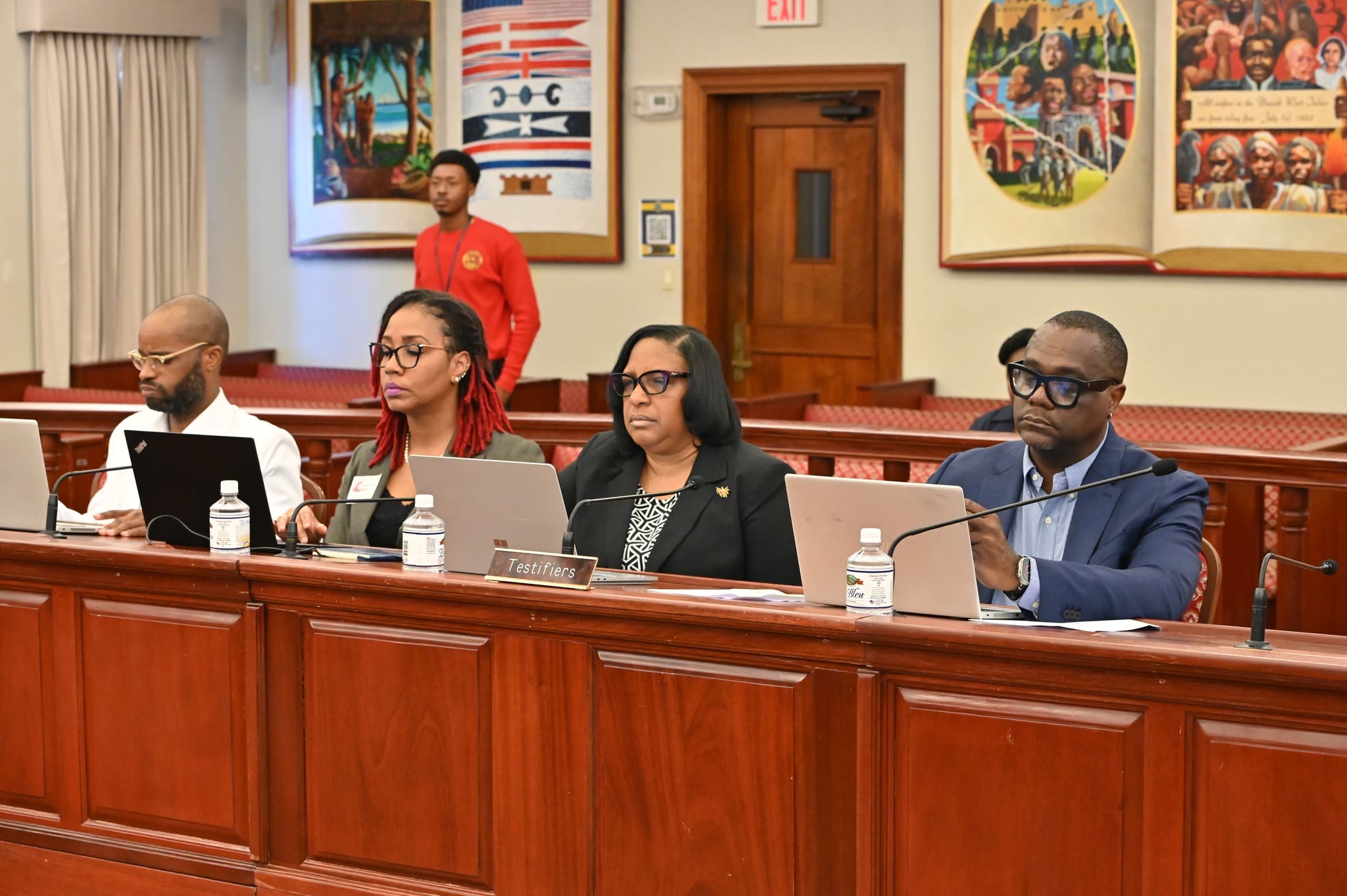
Senators grilled the Property and Procurement Department (DPP) during a Monday hearing before the 36th Legislature’s Government Operations, Veterans Affairs, and Consumer Protection Committee, raising concerns over vehicle fleet inefficiencies, contract bottlenecks and long-stalled development projects, including Hotel on the Cay and the Paul E. Joseph Stadium on St. Croix.
One of the most pressing issues was the government’s fleet management. Legislators questioned how DPP, despite overseeing a substantial number of government vehicles, continued to struggle with maintenance and compliance. Sen. Clifford Joseph pushed for in-house mechanic training, arguing that government efficiency would improve if technicians were trained to handle routine maintenance and repairs internally. DPP Commissioner Lisa Alejandro admitted that while the idea was worth exploring, the department lacked the staffing and resources to execute such a plan. “We would have to hire the team to do that,” Alejandro said. “Right now, we depend on dealerships for warranty services, and our department provides only basic maintenance like tire and oil changes.”
Beyond maintenance concerns, senators also scrutinized DPP’s oversight of vehicle use. The department is working to implement a stricter fuel card system to curb unauthorized purchases, but Sen. Alma Francis Heyliger expressed frustration that enforcement measures were not already in place. “If you were hired by me, and I tell you that at 5 p.m., you park the government car and don’t take it home, that’s it. And if you don’t, you’re terminated,” she said, while others pointed out that despite the presence of GPS tracking, government vehicles were still being misused.
Legislators also turned their attention to DPP’s contract administration process, which has handled more than $1 billion in contracts over the past fiscal year. However, with only one attorney responsible for reviewing over 300 contracts, lawmakers were alarmed at the delays in vendor payments and contract renewals. “That’s truly concerning,” said Sen. Kenneth Gittens. “You’re the custodian of all government contracts, and yet you have only one person reviewing them?”
Alejandro confirmed that outside the Attorney General’s office, DPP lacked additional legal resources to assist with contract reviews, contributing to the ongoing backlog.
Managing 190 government-leased properties, DPP has been renegotiating agreements to boost private investment, though issues remain in collecting payments. Assistant Commissioner Vincent Richards stated that while 80 to 90 percent of government tenants are current, some remain delinquent.
“We have sent out notices to cure and have even taken legal action,” Alejandro said. Sen. Carla Joseph demanded clear timelines for lease reconciliation efforts and the rollout of updated procurement procedures, criticizing the lack of enforcement mechanisms to hold agencies accountable for contract failures.
Frustrations slightly peaked when lawmakers turned their attention to major stalled development projects, particularly Hotel on the Cay and the Paul E. Joseph Stadium. Sen. Franklin Johnson pressed DPP on why, despite being awarded a lease three years ago, no major progress had been made at Hotel on the Cay.
“Sometimes you just have to take it back and find someone who can actually do the work,” he said. “St. Croix desperately needs hotel rooms.”
Richards acknowledged that while the developers had submitted permit applications through the Department of Planning and Natural Resources, major construction had yet to begin. He confirmed that DPP inspects the property every 30 days and has conducted a legal review that found no major deficiencies in the lease agreement but admitted the department was “not satisfied with the pace of development.”
Further complicating the situation, the hotel was ordered to suspend operations in January 2025 after two confirmed cases of Legionnaires’ disease were linked to its water system. The Health Department mandated immediate remediation, pushing the project back even further.
The delays at the Paul E. Joseph Stadium project drew just as much concern. Initiated more than a decade ago, the stadium’s reconstruction has been plagued by years of setbacks, budget overruns, and now contract disputes. Johnson noted that several contractors had taken legal action over unpaid invoices, further stalling construction. “People are suing because they haven’t been paid,” Johnson said. “At this point, there needs to be a directive to push this project forward.”
Gov. Albert Bryan Jr. recently submitted legislation requesting additional funding to complete the stadium, but senators voiced skepticism that more money would solve the problem.
As lawmakers pushed for greater accountability, Gittens underscored the need for consistency in enforcing contractual obligations. “If we’re holding smaller vendors accountable, we need to do the same for major developers who don’t deliver,” he said. “If Hotel on the Cay and Paul E. Joseph Stadium are not meeting their contractual agreements, we need to take the same aggressive legal action as we did with other contract failures.”
Alejandro insisted that DPP was taking steps to modernize procurement, improve fleet operations, and hold vendors accountable but acknowledged the department faced challenges, particularly with staffing shortages and limited enforcement power. “We continue to progress steadily towards our goal of reimagining and elevating the landscape of doing business with the government of the Virgin Islands,” she said.
Sens. Avery L. Lewis, Novelle E. Francis Jr., Ray Fonseca, Alma Francis Heyliger, Kenneth L. Gittens, Franklin D. Johnson, and Carla J. Joseph were present at the Monday’s meeting, including non-committee members Sens. Angel L. Bolques Jr., Clifford Joseph, Marvin Blyden, Kurt A. Vialet, and Hubert Frederick.













